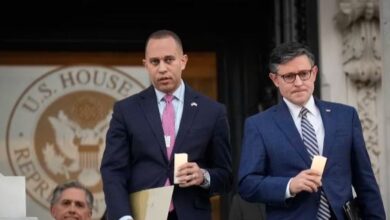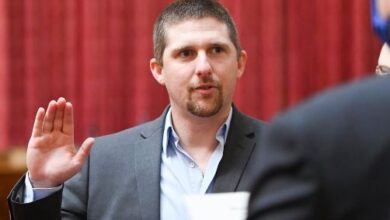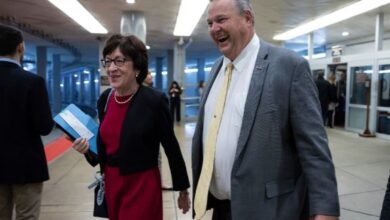Arizona State Senator’s Unique Prayer In Tongues Precedes Abortion Ruling

In a notable occurrence on the floor of the Arizona State Senate, a state senator took an unconventional approach by leading a prayer in tongues, a spiritual practice often associated with Pentecostal and charismatic Christian movements. This rare public display of speaking in tongues came moments before a significant abortion ruling, adding an unusual spiritual dimension to the proceedings.
The senator, known for their strong personal convictions, utilized this moment to invoke spiritual guidance, highlighting the intertwining of faith and governance in some legislative processes. Speaking in tongues, considered by believers as praying in a language unknown to them but understood by a higher power, was witnessed by fellow lawmakers and onlookers, marking a distinctive moment in the legislative body’s history.
This act precedes a pivotal abortion ruling, emphasizing the deep personal and moral considerations that often accompany legislative decisions on such contentious issues. The senator’s choice to engage in this specific form of prayer publicly underlines the diversity of religious expressions and beliefs represented in governmental institutions.
The event sparked a range of reactions, from support to surprise, reflecting the broad spectrum of views on the role of personal faith in public service. It also brings to light the ongoing dialogue about the separation of church and state, a foundational principle in American governance, and how it is navigated in the legislative process.This unique invocation before the abortion ruling underscores the complex and multifaceted nature of political decision-making, where personal belief systems and public policy intersect. It highlights the challenges and considerations lawmakers face as they balance their personal convictions with their responsibilities to their constituents and the broader legal and ethical frameworks guiding their decisions.
As the community and the nation reflect on this event, it serves as a reminder of the rich tapestry of beliefs and practices that contribute to the governance of a diverse society. It also prompts a deeper examination of how personal faith influences public policy decisions, a conversation that remains highly relevant in today’s political landscape.





